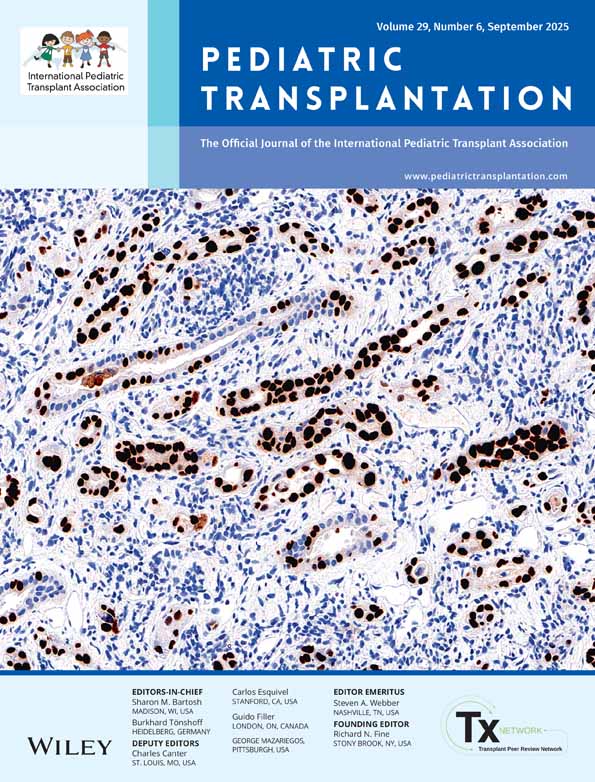Non-adherence in pediatric liver transplant recipients − an assessment of risk factors and natural history
Abstract
Abstract: Despite the fact that non-adherence to medical therapy is one of the major causes of late morbidity and mortality in pediatric liver transplant recipients, little is known of the risk factors involved in this behavior. Three cases of fatal non-adherence are reported. Factors associated with non-adherence were investigated by performing a retrospective chart review of a panel of 27 variables in an age-matched cohort of 15 pediatric liver transplant recipients. The most striking differences between the severely non-adherent group and the age-matched cohort included history of substance abuse, child abuse (physical or sexual), not having two parents at home, having received public assistance, having been diagnosed with a psychiatric disorder, and history of school dropout. In addition it appeared that a pretransplant diagnosis of autoimmune hepatitis was associated with more significant medical sequelae related to non-adherence. These findings are preliminary owing to the retrospective design of this study, but could be used as a starting point for a prospective study of this important phenomenon.




